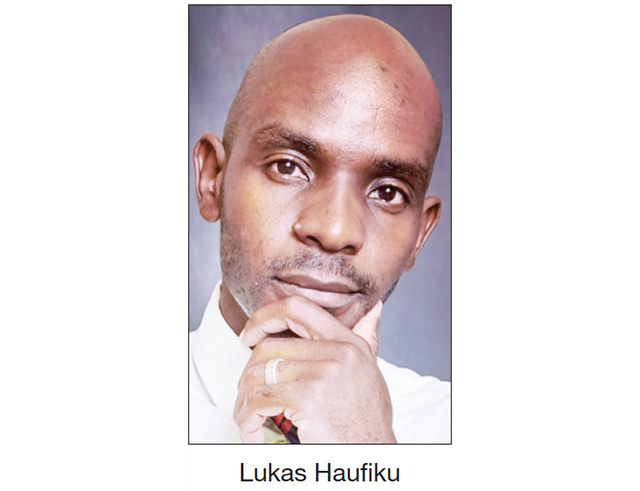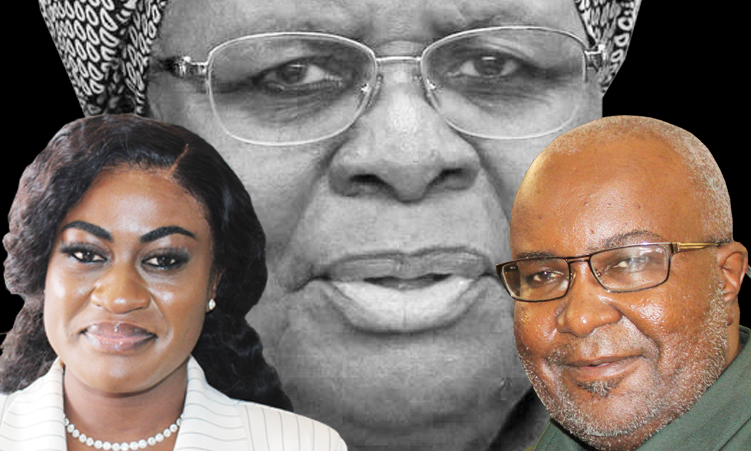LUKAS HAUFIKUON 7 AUGUST 2020, American superstar Cardi B, featuring Megan Thee Stallion, released the song ‘WAP’, which broke the record for the biggest 24-hour debut for an all-female collaboration on YouTube: twenty-six million views on its first day of release.
Sampling the 1993 Frank Ski single ‘Whores In This House’, the X-rated track, which celebrates female sexual pleasure, was met with mixed emotions. Does the song represent empowerment or objectification?
Although many female artists objectify themselves in the application of their trade (Lady Gaga, Ariana Grande and Madonna, etc), male artists are more likely to stereotype and objectify women. This article largely focuses on analysing ‘WAP’ because although degrading women, using misogynistic and violent language by men is not justifiable, there is greater damage when promulgated by women. It denotes that some women may have embraced the patriarchal hip-hop culture where they are predominantly portrayed as sexual objects which fuels sexism, misogyny and harassment.
‘WAP’ is a setback for women and reinforces the stereotypes and gross sexual objectification they continue to face today. That is overlooking the lyrical content and the cultural and subcultural values it represents.
According to Rhys Lindmark, founder of Roote (an online school that dissects root-level systems), empowerment comes from self, e.g. “to actively decide to look sexy tonight”, while objectification comes from the other, e.g. “to see Cardi B as a sex object”.
How much power does each perspective hold? Who has the power? He argues that if a woman objectifies herself, it strips men who objectify women, making ‘WAP’ less objectifying.
However, the objectifier and objectified can be the same person. Women in patriarchal societies feel constantly watched by men, this leads women to objectify themselves. How does a man’s prejudice amount to sexual objectification, yet a woman’s amount to empowerment?
Bearing in mind that three male songwriters have been credited with ‘WAP’, and the video was directed by a man, does the song reflect empowerment or preconceived notions about womanhood and sexuality? The issue is not about men vs women, but the objectification of women, which is not justifiable even when it is “locker room talk”.
Lindmark argues that Cardi B has considerable financial and social power and may have explicitly emphasised female sexual power. “Note that power determines the magnitude of the empowerment vs objectification, but it doesn’t determine its existence. Cardi B can’t control whether you objectify her or not. Cardi B can only control how she feels empowered by her music video. The impact of her empowerment and your objectification depends on power.”
Fair enough, but what does that mean for the girls and women in Uuthilindindi, Versteende, Mashare or Tsumkwe who have no independence, choice, status, power and have been relegated to the back of the bus attributed to cultural and traditional norms?
WAP currently has more than 348 million views on YouTube alone. What is the likelihood that it has also reached many misogynists who would feed their depraved minds on it and A-OK their attitude towards the objectification of women?
The hip-hop culture is patriarchal by design which is why it is easy for Cardi B and Megan Thee Stallion to feel ’empowered’. The system rewards women when they conform to a narrow ideal of beauty and sexuality centred on the male gaze. Manipulation or conforming to the patriarchal system to one’s advantage without challenging its injustice should not be confused with feminism, particularly when it translates into millions in profit.
“Although the lyrics may be about women owning their sexual agency, videos like ‘WAP’ conditions some men to view women simply as being created for their sexual pleasure. It is no coincidence that the world’s leading free porn site, Pornhub, announced that searches for Cardi B rocketed 235%, while searches for Megan Thee Stallion rose 210% after the release of ‘WAP’,” said Dr Claire Rush, Mission and Advocacy Enabler for Girls’ Brigade Ministries.
According to some feminist thinkers, in order to gain social acceptability, women are under constant pressure to correct their bodies and appearance more generally and to make them conform to the ideals of the feminine appearance of their time, the so-called ‘norms of feminine appearance’ (the standards of appearance women feel they should be living up to) (Saul 2003, 144).
There may be nothing wrong with a woman’s choice to sexually express herself and any argument against that can be seen as misogynistic. However, should it be at the cost of ignoring her potential and placing emphasis only on her body?
“Using terms such as ’empowerment’ and ‘modern female sexuality’ have become means of exploitation to sell goods and services. The problem is that sexually objectifying standards and images are masquerading around telling us all that it’s empowerment,” argues Lindmark.
From the boardroom to the bedroom, from the track and field to the high school benches, women have been objectified time and again, while it may be argued that Cardi B and Megan Thee Stallion are somehow not condoning or promoting that kind of sexist
Cynthia Frisby, an associate professor of strategic communication in the University of Missouri School of Journalism, wrote that “the images coming from these music videos are very powerful and influential”, adding that “young audiences may interpret these sexually objectifying images as important ways to be seen as attractive and valuable to society, especially with how pervasive these videos are throughout our culture”.
Videos like ‘WAP’ encourage girls to self-objectify and strive to conform to a societal ideal of beauty and sexuality. The objectification culture is adequately disguised to appear as if it markets the empowerment of women, but the truth is it fundamentally disempowers them and undermines the content of their character.
The song rather detracts from applaudable efforts by most feminism movements, seeing that it implores women to give men access to their bodies in exchange for commodities.
Psychologists Barbara Fredrickson and Tomi-Ann Roberts write that when women are treated as objects, they momentarily view their own bodies from the perspective of the person objectifying them. In turn, they become preoccupied with their physical appearance and sexual value to others. This process of ‘self-objectification’ leads women to experience feelings such as shame and anxiety. If repeated, it can eventually lead to long-term psychological harm.
As indicated earlier, the song celebrates female sexual pleasure and was met with mixed emotions. It is important to protect the vulnerable, especially children, from glamourising ideas about sex, and to not overlook their intelligence and creativity and that they can give more to the world than just their bodies.
Stay informed with The Namibian – your source for credible journalism. Get in-depth reporting and opinions for
only N$85 a month. Invest in journalism, invest in democracy –
Subscribe Now!










